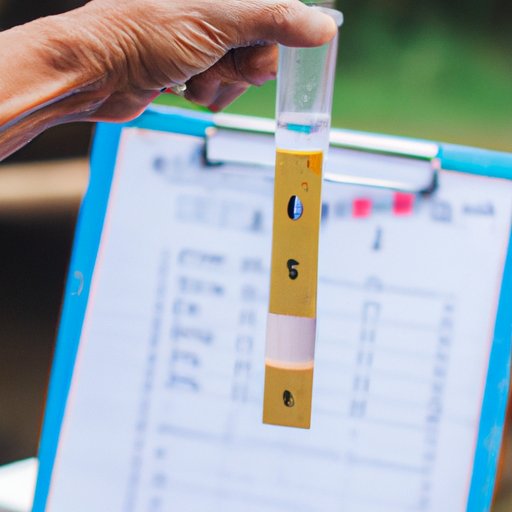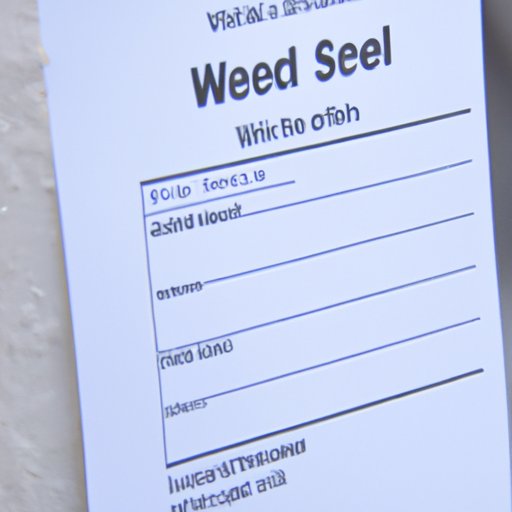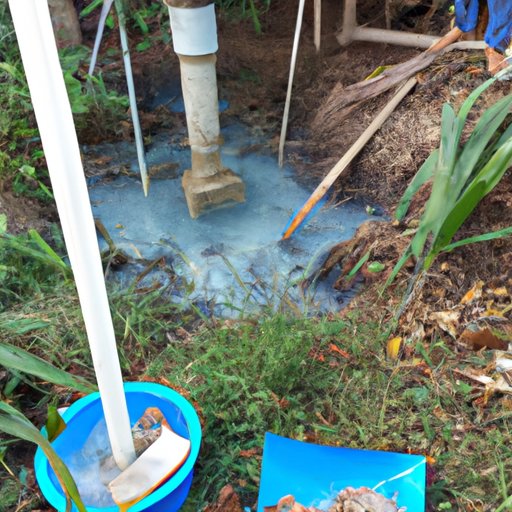Introduction
Well water is a common source of drinking water in many rural areas. It is water that comes from a hole drilled into the ground, which taps into an underground aquifer and is pumped up for use. Many people rely on well water for their daily needs, but it can pose potential health risks due to contamination.
Examining the Risks of Drinking Well Water
Contamination of well water occurs when pollutants enter the groundwater supply. Some of the most common sources of contamination are agricultural runoff, septic systems, industrial waste, and surface water. These pollutants can make their way into well water, which can lead to serious health problems for those who drink it.
The types of contaminants found in well water vary from place to place. They may include bacteria, viruses, parasites, nitrates, arsenic, lead, and other toxic chemicals. The health risks associated with drinking contaminated well water depend on the type and concentration of the contaminant present.

How to Test for Contaminants in Well Water
Testing your well water for contaminants is the best way to determine if it is safe to drink. There are two main options for testing: DIY testing and professional testing. DIY testing kits are available at most hardware stores, and they allow you to test your own water quickly and easily. Professional testing is more comprehensive and can detect a wider range of contaminants.
Regardless of which option you choose, it is important to have your well water tested regularly. This will help ensure that any contaminants present are detected and addressed quickly.

Common Diseases Contracted from Contaminated Well Water
Drinking contaminated well water can cause a variety of illnesses. Bacteria-related illnesses, such as E. coli, salmonella, and shigella, can be contracted from drinking contaminated well water. Viral diseases, such as hepatitis A and rotavirus, can also be contracted from contaminated well water. In addition, parasitic infections, such as giardiasis, can be contracted from drinking contaminated water.
These illnesses can have serious health consequences, including dehydration, abdominal cramps, vomiting, and diarrhea. It is important to note that these illnesses can be especially dangerous for infants, young children, pregnant women, and elderly individuals.

The Benefits of Having Your Well Water Tested Regularly
Having your well water tested regularly is one of the best ways to protect your family’s health. Early detection of contaminants allows you to take action to reduce or eliminate the risk of illness. Testing can also alert you to any changes in your well water quality, allowing you to take steps to address any issues.
Regular testing can also provide peace of mind. Knowing that your water is safe to drink can give you the confidence to use it without fear of getting sick.
The Role of Local Health Departments in Monitoring Well Water Safety
Local health departments play an important role in protecting public health by monitoring well water safety. These departments are responsible for setting regulations and guidelines for well water testing, as well as enforcing reporting requirements. They also provide resources and information to help educate people about the importance of testing their well water.
In addition, local health departments can provide assistance in finding qualified professionals to test your well water. They can also provide information on how to properly maintain and treat your well water to ensure its safety.
Conclusion
Well water can be contaminated with various substances, which can make people sick. To protect yourself and your family, it is important to have your well water tested regularly. DIY testing kits are available for purchase, or you can contact a professional to conduct a more comprehensive test. Local health departments can provide resources and guidance on testing and maintaining your well water, so be sure to reach out to them for assistance.
(Note: Is this article not meeting your expectations? Do you have knowledge or insights to share? Unlock new opportunities and expand your reach by joining our authors team. Click Registration to join us and share your expertise with our readers.)
